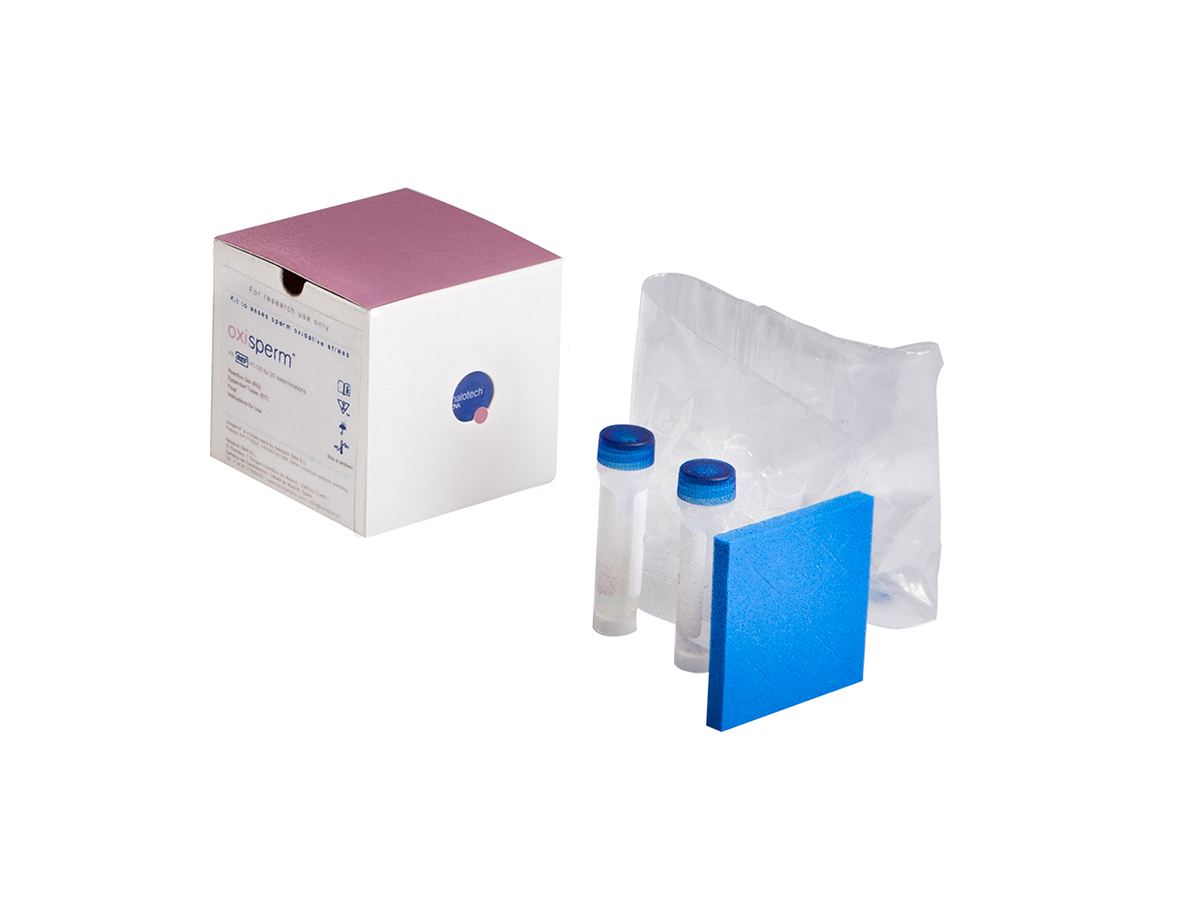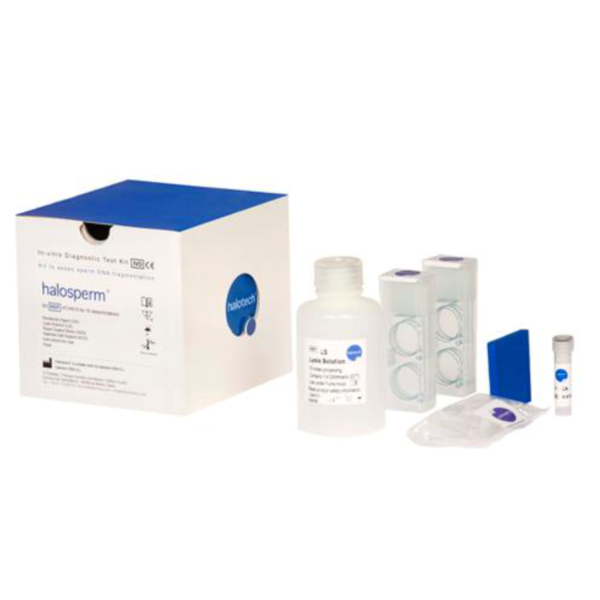Oxisperm
Determination of sperm oxidative stress
Manufacturer: HALOTECH DNA
Country: Spain
halotech®
Every life is unique. So are we
Advanced analysis of the male factor
During normal metabolism, the cells of the human body produce some molecules called reactive oxygen species (ROS) with a high oxidizing capacity. ROS are involved in the regulation of important physiological functions such as the control of infections. In human reproduction, a certain ROS level is necessary for sperm capacitation, hyperactivation, acrosomal reaction or sperm-oocyte fusion that are key processes for reproductive success. For this reason, the human body produces antioxidant compounds in order to control ROS levels. Under normal conditions, the production of ROS and its neutralization by natural antioxidants is a well-balanced process.
1. WHAT IS OXIDATIVE STRESS?
Oxidative stress refers to the imbalance due to excess ROS or oxidants over the capability of the cell or media to mount an effective antioxidant response. When antioxidant defences are unable to neutralize an excessive generation of ROS, a misbalance against the pro-oxidant environment of the media occurs. Within this scenario, pro-oxidant environment can induce damage at cell components such as lipids, proteins and DNA.
2. DOES PRO-OXIDANT CAPACITY AFFECT MALE FERTILITY?
Yes, causes of male infertility include anatomical abnormalities, hormonal imbalances, and genetic factors. However, in about 50% of cases, it is not possible to diagnose the source of infertility (idiopathic infertility). Currently, it is known that one of the main causes of idiopathic male infertility is linked to the misbalance of pro-oxidant capacity.
3. WHY DOES PRO-OXIDANT CAPACITY AFFECT MALE FERTILITY?
ROS oxidizes the lipids of the sperm membrane which makes it become more rigid decreasing sperm cells motility. Furthermore, and more importantly, ROS produce breaks in sperm DNA and high levels of DNA damage are associated with decreased oocyte fecundation, embryo quality and pregnancy rate.
4. WHY IS IT IMPORTANT TO MEASURE PRO-OXIDANT CAPACITY LEVELS IN SEMEN?
Misbalance of pro-oxidant capacity is the main but not the only cause of idiopathic male infertility. Determining the levels of ROs activity in semen helps in the diagnosis of the cause of infertility. In addition, in those cases in which administration of anti-oxidant supplements has been prescribed, it may help to know the effectiveness of this treatment.
5. CAN PRO-OXIDANT CAPACITY BE MEASURED IN A CONVENTIONAL SEMINOGRAM?
No, the conventional seminogram gives information on the concentration, morphology and motility of sperm, but not on other important parameters such as levels of misbalance of the pro-oxidant capacity or damage in sperm DNA.
6. IS THERE ANY WAY TO DETERMINE PRO-OXIDANT CAPACITY LEVELS?
Yes. oxiSperm II is a simple, fast and accurate colorimetric methodology to test for differences in the pro-oxidant capacity in fresh semen samples.
7. ARE THE RESULTS OF PRO-OXIDANT ASSESSMENT AT THE EJACULATE CONSISTENT ACROSS A MAN’S LIFE?
No, since the level of pro-oxidant activity depends on factors such as diet, lifestyle, infections or medications, among others.
8. WHAT IS THE PROCEDURE LIKE?
The patient just has to follow the instructions of his medical professional. They will need a semen sample, which will be processed by the laboratory personnel, following a pre-established laboratory protocol.
9. IN WHAT CASES IS THE PRO-OXIDANT CAPACITY TEST INDICATED?
Many professionals use information from halotech solutions at the start of treatment, supplementing conventional semen analysis. oxiSperm II is especially recommended for:
- Couples with a history of miscarriages.
- Couples with unexplained infertility for more than 6 months
- Men older than 40
- Men under treatment with prescription medications
- Men exposed to toxic agents and exposure to radiation
- Men who have had urogenital infections
- Men with unhealthy lifestyle habits: those who smoke, are sedentary, have an unbalanced diet or are obese.
- Poor quality of the embryo during second cycles of egg donation
- Male factor of unknown cause
halotech DNA
Parque Científico de Madrid, C/ Faraday, 7. Planta 1. Madrid (Spain)
(+34) 91 279 69 50 · info@halotechdna.com
Related Products
halosperm
Determination of sperm DNA fragmentation Manufacturer: HALOTECH DNA Country: Spain



